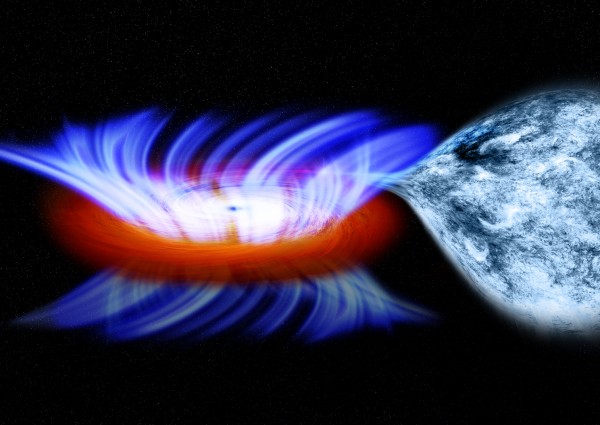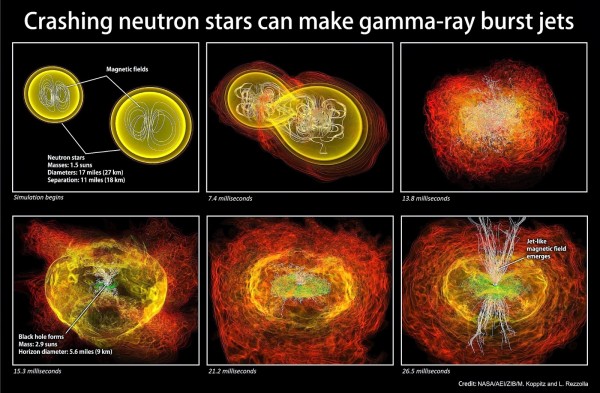“They had discovered one could grow as hungry for light as for food.” -Stephen King
Black holes are an endlessly fascinating topic to learn and speculate about. We've talked about the largest ones in the Universe, but have you ever wondered about the other side of that coin: what about the smallest?
 Illustration credit: NASA/CXC/M.Weiss, via http://chandra.harvard.edu/photo/2012/igr/.
Illustration credit: NASA/CXC/M.Weiss, via http://chandra.harvard.edu/photo/2012/igr/.
As it turns out, although there's one main major way to create black holes, it isn't the only one. A number of theoretical options ought to make it possible to have a black hole that's even smaller than the smallest one we've ever discovered, and some of them really ought to be out there! We just need to go and find them.


I think we have to wait for the small black holes a bit longer then the 10^68 years. It's because the black holes are eating the an interstelalr matter and the mass loss caused by the Hawking radiation is compensated by eating 1 proton in 1 trillion years (if I've calculated it well for black hole of mass of about 3 sun masses). How long it would take till the Universe will be so empty, that a black hole doesn't meet single proton in trillion of years?
Will you knock off the stupid exclamation points? It is terribly distracting.
Isn't there a competition between a BH evaporating thermal energy, and it absorbing microwave background energy? The radiative energy of the BH must be greater than the microwave background in order to lose mass? IIRC the "temperature" of the hawking radiation is very small, so the universe would have to get very old/cold, before BHs can start losing mass.
Some theories have an intermediate state between a BH and neutron star, a "quark" star. It is even proposed that heavy enough NS collapse into quark stars creating a quark-nova.
Hi Ethan!
If black holes evaporate, why they don't become visible right after they've lost a mass needed to catch a light?
Thanks :)
@Danil Smirnov #4:
The black hole's event horizon will shrink as it loses mass, just like it expands as it gains mass, but the horizon will persist until all the mass radiates away.
It's not the amount of mass that makes a black hole, it's how tightly squeezed together the mass is. You could make a tiny black hole out of your computer if you could squeeze it down enough. It's just really hard to squeeze matter together so much unless you gather lots of it together and let gravity do the work for you.